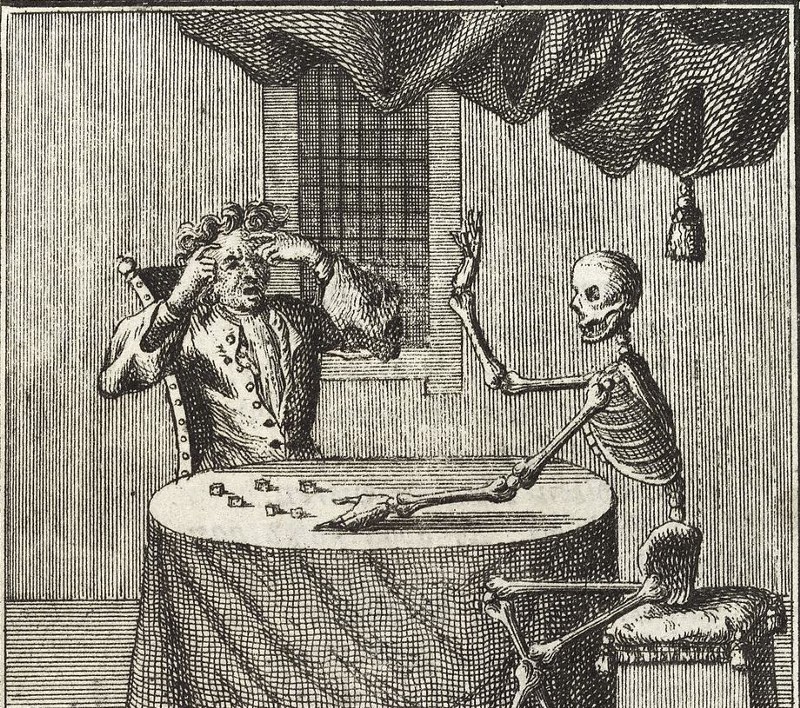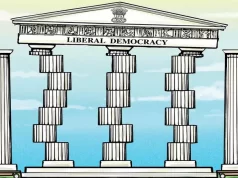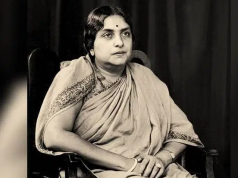In an era where we can inconceivably see different political opinions distill from each other, and mutual consensus building, become ever reclusive, it is important that we reassess our structure of the state machinery. Much to Hamilton’s dismay, in a parliamentary democracy, it is highly convenient to look at the most observable political developments while completely ignoring the functioning of the unelected officials. This problem becomes more severe when the underlying issue is continuously creating a contravention and yet going severely unnoticed. One such issue is that of death penalty in India.
Many might fiercely argue that the practice of awarding death penalties in India has been (by custom) placed at a rarest of rare pedestal and does not necessarily qualify as an emergency. The fact that only 5 people have been executed in the country since 1995 seems like sufficient proof of this, considering that our star spangled friends across the Atlantic have conducted 1,012 executions in the same period of time.
However, a philosophical problem arises when we consider the fallacy in looking at the problem of death penalty in an excessively empirical way, somehow implying that a problem’s intensity is always dependent on its magnitude.
Before I try establishing a liberal case against the practice of death penalty, it is imperative that we look at the excessively problematic structure of the state. To begin with, I do not seek to challenge the well-established notion of a mutual and binding social contract between the citizens and the state, and the capacity of punishment and coercion provided to the state in case of a violation. The Weberian definition of the state as an organisation with a monopoly on the use of force, perhaps embraces the term in the most representative manner.
The problem arises when we try understanding the nature of the citizens’ with respect to a particular state. Are citizens equal shareholders in a mutually binding contract as proposed by Locke, or are they savages meant to uphold a pious order for meager survival as per Hobbes? In reality, they seem like they are neither and yet, both.
While on one hand citizens can be looked at as subjects of the regressive 21st century democratic order, which is skeptical of inclusivity and yet on the other, we have not arrived at the stage where we can shed the individual liberties of most citizens and club them with the state. This becomes a theoretical point of contention, especially with reference to death penalties as we see that, ever increasingly, the violation leading to death penalties is seen as a violation of the state and not a given individual. This is severely problematic as it doesn’t only glorify the state to the extent of ensuring that it can play god, when its sanctity is violated, it also undermines the individual liberties of citizens, who on being wronged might not get the privilege of the same punishment being meted out.
What is more troublesome for death penalties in India is the multitude of practical problems related to it. The most worrying one is the excessive elusiveness, accorded to it by successive governments and the ‘all sacramental’ Supreme Court of India. The denial of maintenance of any records in 1947, however ludicrous it may sound, serves as one of the illustrious examples. The fact that an official estimate of 52 executions since independence has been countered by an estimate of 1422 executions from 1953 to 1963 is enough to raise eyebrows. Adding to this cacophony is the prolonged hush-hush of the judiciary. If a practice is mandated by fourteen different sections of the Indian Penal Code, why is it vilified? Is the practice an overt taboo, making all participants involved (in essence, only the giver of capital punishment, since the opinions of receiver will become redundant) embarrassed? If, this is so then why as a society must we oppose the existence of UN sanctioned moratoriums on the capital punishment as we did in 2007 and 2012.
An elaborate narrative of lurking lawlessness and complete chaos taking over is often sung whenever a liberal notion of the capital punishment is put forth. “Next thing we know, you shall say that an individual should have the freedom to kill their neighbour as well,” is one of the several ridiculous statements that are levied against any such notion. For those who do not see, the obvious logical fallacies, let us just say that putting forth the aforementioned statement is like saying socialists do not know economics. Unsubstantiated with empirical evidence, the rhetoric borderlines on lunacy.
If we rely on the data from the United States of America, which in its guise of a federal order gives each state to adopt their own laws, we can get a comparative understanding of a largely homogenous order. We come to the realisation that the states with death penalty have a higher rate of violent crimes. Since, we cannot possibly establish a causative flow between either of the variables, it must be taken seriously, that a co-relation exists, nonetheless.
We earlier also spoke about the conception of justice with pretense to the state. The problem with the status quo is that by looking at the crime being committed against the state, it necessarily takes on the robes of a system of retributive justice. It focuses on levying a proportionate amount of harm to the delinquent rather than restoring and preventing a future incident. Considering, that this conception inevitably creates an ‘each man for himself’ environment, the fact that the society which necessitated delinquent behaviour in the first place, is left untouched. A paradox arises- on one hand the state assumes the role of the entire society to punish the perpetrator, and on the other, the role of society is blatantly disregarded in restoring a just order.
At this point, the ‘Right to Life and Personal Liberty’ as assured by Article 21 of the Constitution becomes ‘Right to not necessarily being condemned to death, if lucky’. Michel Foucault in ‘The History of Sexuality’ offers a similar idea when he says that the defining privilege of the European absolutist monarchies before 17th century was pronouncing life and death. Thus, “the sovereign exercised his right of life, only by exercising his right to kill or by refraining from it” (Foucault, 1984). This notion becomes problematic in a 21st century democratic order, since it is neither absolutist nor headed by a sovereign. Far from it, the state tries maintaining an order which is inherently based on the collective will of the citizens to continue living together and is upheld by the guarantee of certain privileges being meted out, regardless of the individual’s socio-political status.
Renowned political theorist, Austin Sarat offers yet another anomaly. Capital punishment, Sarat argues, undermines the distinction between extralegal and legal violence, which in turn jeopardises the law’s claim to legitimacy. He says, “Legitimacy is … one way of charting the boundaries of state violence. It is also the minimal answer to skeptical questions about the ways that state violence differs from the turmoil and disorder the state is allegedly brought into being to conquer” (Sarat, 2001), thus pointing to the philosophical contention of the creation of a modern day liberal state on one hand and keeping the bastion of populist values, intricate in our system.
No wonder, in the present day scenario only 57 countries have been categorised as ‘retentionist’ by the Amnesty International. We are forced to beckon the question that how can we proclaim the status as upholders of peace and liberty while condemning political extremists to death and sharing a common space with overtly tyrannical states like China and Saudi Arabia?
Moreover, how is it that most other countries manage their internal and external security with perhaps better efficiency even without the provision of a capital punishment? Are criminals, just somehow worse in India? One might argue that it is unfair to compare the law and order in India situation to that of developed Western European countries which have enjoyed independence and all the developmental perks that come along, but what about Russia which has practically abolished death penalty. Here, we hit a roadblock.
However dehumanising, it may sound, I must mention that the price of death is a lot higher than we think. Kept in maximum security prisons, for multiple years while all their clemency pleas carry the verdict of life to and forth, the prisoners may just have a chance at repentance if they are given a life sentence. This, along with the obvious moral dilemma that capital punishment poses, it is uncanny why we have learnt to embrace our dead silence.
References
1. Right of Death and Power of Life.” The History of Sexuality, by Michel Foucault, vol. 1, Crane Library at the University of British Columbia, 2009, p. 135
2. Sarat, A. (2002). When the state kills: Capital punishment and the American condition. Princeton, NJ: Princeton Univ. Press.
Post Disclaimer
The opinions expressed in this essay are those of the authors. They do not purport to reflect the opinions or views of CCS.






